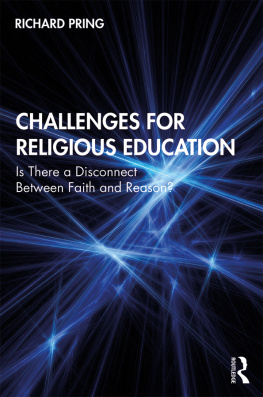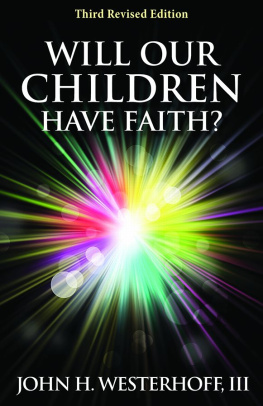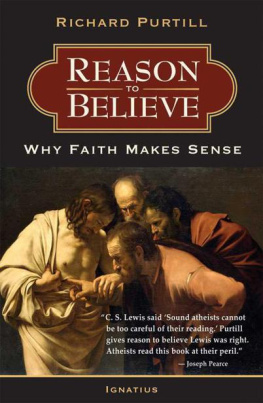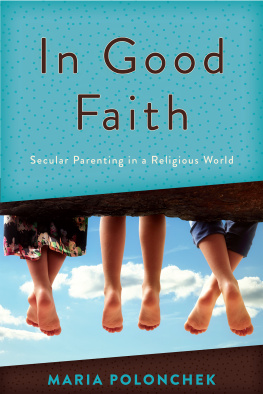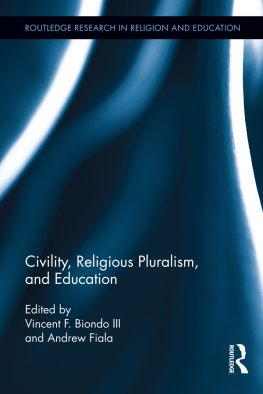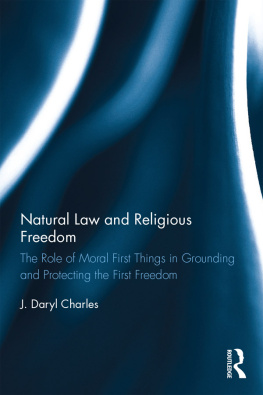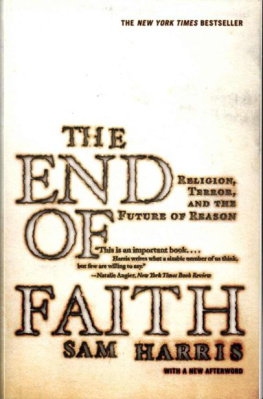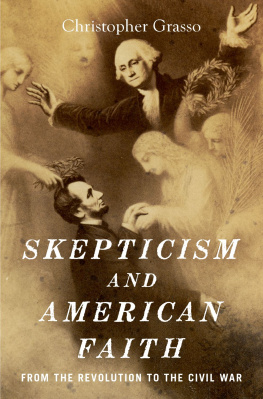Challenges for Religious Education
Major social changes, especially as a result of the more multicultural nature of society, have raised important issues about the teaching of religion and the rational basis of different religious faiths. Challenges for Religious Education addresses and critically examines these changes and asks where religious education and Faith Schools fit within secular society and indeed whether there is still a place for them at all.
Analysing what religious education could look like if it were considered from a wider world views perspective that doesnt focus on a particular set of religious beliefs, this book considers the reasonableness of holding a faith and therefore in teaching it; the ongoing tensions between faith and reason; arguments for and against the study of religious education; whether modern secular thought is itself an ideology; and the philosophical standpoints on the relationship between faith and reason.
Linking faith and reason with the issue of whether religious education is truly necessary in a modern world, Challenges for Religious Education is a crucial read for anyone interested in the future of religious education teaching in a secular society.
Richard Pring is Emeritus Professor of Education, and formerly Director of the Department of Educational Studies, University of Oxford, UK. His recent and relevant books include The Future of Publicly Funded Faith Schools (2018) and Thinking Philosophically about Education (2018) both published by Routledge.
Challenges for Religious Education
Is There a Disconnect Between Faith and Reason?
Richard Pring

First published 2020
by Routledge
2 Park Square, Milton Park, Abingdon, Oxon, OX14 4RN
and by Routledge
52 Vanderbilt Avenue, New York, NY 10017
Routledge is an imprint of the Taylor & Francis Group, an informa business
2020 Richard Pring
The right of Richard Pring to be identified as author of this work has been asserted by him in accordance with sections 77 and 78 of the Copyright, Designs and Patents Act 1988.
All rights reserved. No part of this book may be reprinted or reproduced or utilised in any form or by any electronic, mechanical, or other means, now known or hereafter invented, including photocopying and recording, or in any information storage or retrieval system, without permission in writing from the publishers.
Trademark notice: Product or corporate names may be trademarks or registered trademarks, and are used only for identification and explanation without intent to infringe.
British Library Cataloguing-in-Publication Data
A catalogue record for this book is available from the British Library
Library of Congress Cataloging-in-Publication Data
A catalog record for this book has been requested
ISBN: 978-0-367-27906-6 (hbk)
ISBN: 978-0-367-27907-3 (pbk)
ISBN: 978-0-429-29865-3 (ebk)
Typeset in Bembo
by Apex CoVantage, LLC
To Faye, Helen, Katherine and Sally
Contents
In a book recently published by Routledge (The Future of Publicly Funded Faith Schools), I pointed to the increasing and often hostile objections to the continuation of financial support for Faith Schools within the State system of education. It is now commonly argued that in a secular society there is need for a secular system of education, one which does not discriminate in admissions to state-funded schools on the basis of a religious faith. Within a secular system there would doubtless be a place for some form of religious education, but not one which is based on a particular set of religious beliefs. Indeed, the 2017 Commission on Religious Education for England and Wales recommended that the subject should be renamed as Religion and World Views, enabling young people, in their preparation for life in modern society, to have knowledge about religious and non-religious world views but without commitment to (or encouragement to be committed to) any one of them.
Such a view, though gradually emerging in practice in Britain over several decades, is radically different from the 19th-century beginning of the national system of education when a Christian culture was taken for granted and religious teaching was based on Christian foundations.
But many of the issues underpinning this cultural shift are by no means peculiar to Britain, in particular that of promoting a faith within an educational context where a main purpose of such a context is, or should be, to develop rationality in its different forms. Therefore, we have seen within the increasingly more secular cultures vigorous debates on the nature and practice of religious education in schools but also, on the other hand, and partly in response to such secular cultures, the determination of particular religious bodies to preserve within their respective state-financed schools a faith-based approach to education and to the religious education curriculum.
Therefore, although the immediate focus of this book is upon England and Wales, but with special reference to Ireland because of the debate there on the nature and practice of religious education in schools, the central philosophical issues raised are of wider international significance concerning the reasonableness in holding a religious faith, the reasonableness therefore in teaching it, and the appropriateness of the religious formation within it, should that be what the parents wish, even though within the non-religious State systems.
In this regard, special reference will be made, particularly in , to the alternative arguments for a distinctively secular education as developed, for example, by Emile Durkheim, and which prevails in France.
The changes in the social context, especially as a result of immigration and the more multicultural nature of society, raise important issues about the teaching of religion and the rational basis of different religious faiths. In that respect the differences, but at the same time the connections, between the major Abrahamic religious faiths (Christianity, Islam and Judaism) cannot be ignored in seeking a way forward for religious education and formation.
A key issue, therefore, as with the teaching of any content in an educational context, must concern the nature of religion as a body of knowledge, thereby having truth claims and rational foundations. To what extent are such claims, and the way of life and human formation which accompany them, defensible within an educational context?
The answer requires a deeper and more systematic account of the relationship between faith and reason, drawing upon a long and too-often ignored tradition of philosophical examination of the issues. Frequently a more philosophical answer to such a question has not been forthcoming or directed at those who, unaware of such traditions, too easily dismiss such claims in favour of a purely secular understanding of the universe and thereby of the educational system in which education is to take place.
It is therefore the aim of this book to go more deeply into this debate that is, to argue for the teaching of religious education on the basis of the reasonableness of religious beliefs, and therefore for the promotion of a way of life (personal formation) consonant with those beliefs, thereby rejecting the frequently made opposition to such on the basis of its being indoctrinatory.

